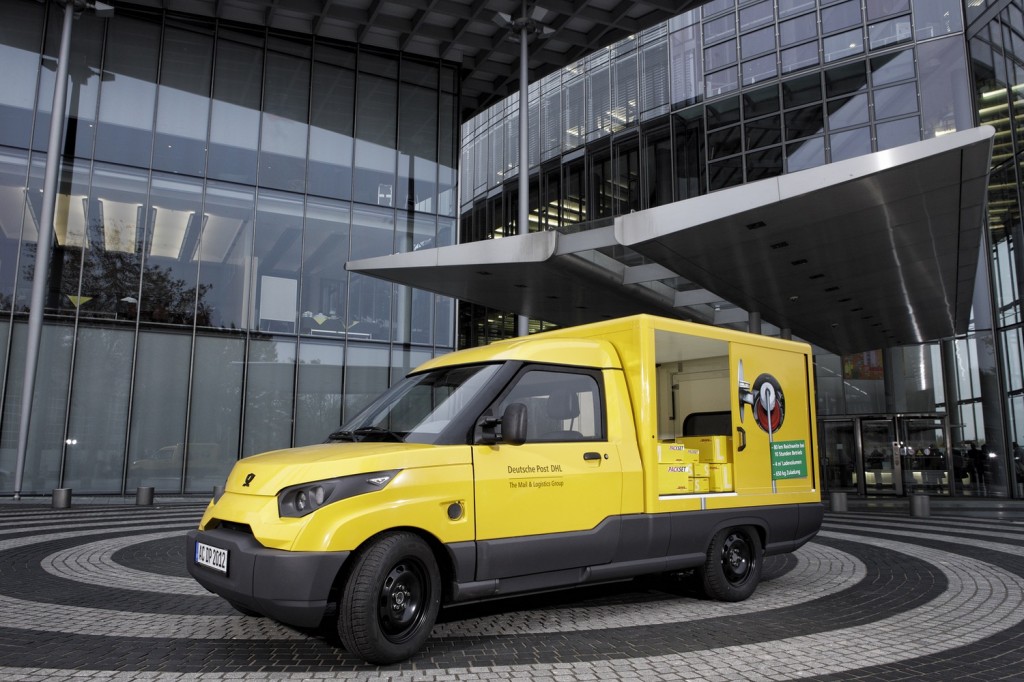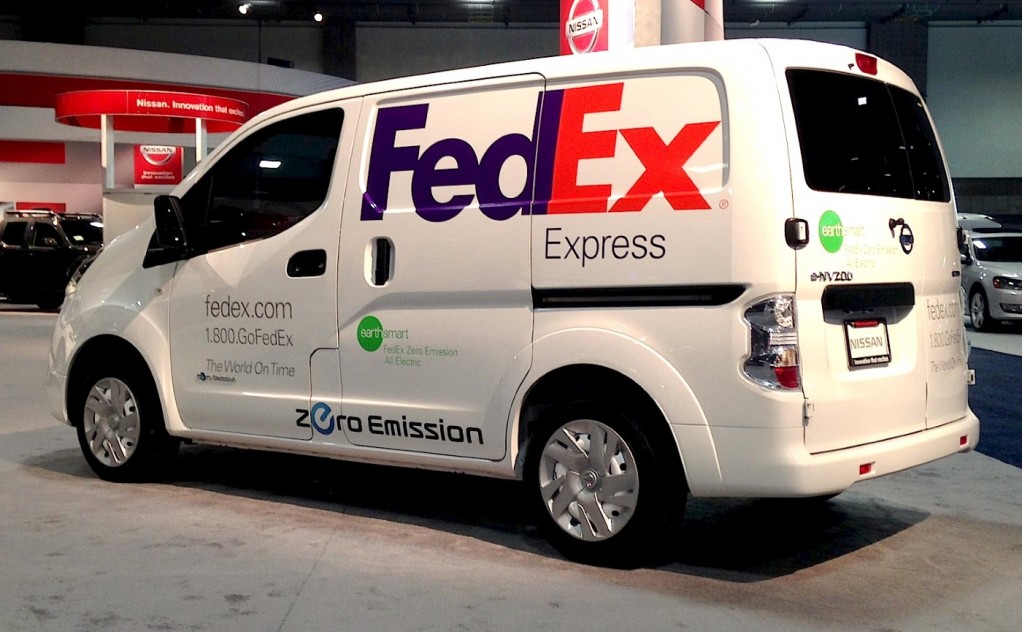Suppose you're one of the world's three largest automakers.
You don't offer a type of vehicle that a relatively small but highly visible customer in your home market wants.
Do you have the right to be annoyed if that customer designs those vehicles itself?
DON'T MISS: USPS picks AM General to help build next-generation mail trucks
Only, apparently, if that customer looks like it might pose a future threat because it might sell its vehicles to others.
That's the situation giant VW Group finds itself in with Deutsche Post, the German postal service, which is planning to phase out its Volkswagen Caddy small delivery vans.
Starting in 2008 and 2009, as the auto industry went through the convulsions of the global recession, the postal service reasoned it had to replace the diesel Caddy vans with zero-emission electric vans.

Deutsche Post StreetScooter electric van prototype
Urban and suburban delivery routes are ideal for battery-electric or plug-in hybrid commercial vehicles, which return to the same base at day's end and can be recharged overnight.
In 2014, Deutsche Post purchased a small startup that had developed, prototyped, and tested a small electric van called the StreetScooter—using off-the-shelf components and a network of mostly German suppliers.
It has built 1,000 so far, but has raised the annual production rate to 5,000 a year—seemingly enough to trigger VW's startle response.
CHECK OUT: Germans to build own unique electric vans for postal service
VW Group CEO Matthias Mueller told Reuters he is "annoyed beyond measure" that the postal service did not approach the automaker.
But the postal service says it pursued the StreetScooter project only after the big auto companies declined to build what for them would have been a relatively small number of vans.
Recall that eight years ago, VW as a company largely sneered at hybrid and electric cars, placing its carbon-reduction efforts firmly in the so-called "Clean Diesel" camp instead.

Matthias Müller
We know how the Volkswagen diesel scandal ended up, of course.
Now VW Group says it will have 30 different battery-electric models in production by 2025 among its various brands.
Its current offerings are the Volkswagen e-Golf, rated at 83 miles of range, and the VW e-Up electric minicar that's not sold in North America.
While there's a commercial version of the e-Up, essentially a hatchback without rear windows or a rear seat, it's nowhere near as capacious as the Caddy.
The first long-range electric car from VW Group is likely to be the Audi e-tron crossover utility vehicle that will launch in 2018—or 10 years after the postal service began to explore alternatives.

FedEx to trial Nissan e-NV200 electric van
The full Reuters piece is worth reading, if only for the tone of indignation and entitlement from VW Group's post-scandal CEO.
Deutsche Post says it hasn't yet decided whether it will offer its StreetScooter electric vans for sale to other customers who may need a small, all-electric van.
Don't get your hopes up for seeing them in North America, however: they're almost surely not designed to "Federalize," or meet U.S. vehicle rules and safety standards.
The highest-volume all-electric delivery van is the Nissan e-NV200, an electric version of the gasoline NV200 van sold globally.
Nissan has been testing the e-NV200 in North American trials for several years now, but thus far has shown no signs of offering it for sale.
EDITOR'S NOTE: An earlier version of this article used incorrect names for the German postal service. As several readers pointed out, the entity known as Deutsche Bundespost became Deutsche Post AG in 1994. Also, the initials 'DB' do not refer to Deutsche Bundespost, but to Deutsche Bahn, the German railroad company. We apologize for the errors, and have edited the article accordingly.
_______________________________________













